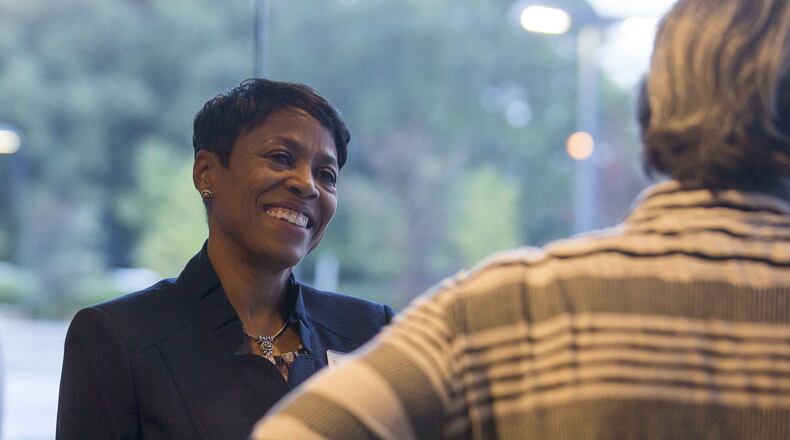With 22 years working in public education before retiring two years ago, Wandy Taylor has the most experience working in a school system of any candidate running for the Gwinnett County school board. And 15 of those years were with the Gwinnett County Public School system.
“That’s part of what makes me the most qualified candidate,” said the District 2 contender. “Education is in my DNA.” After retiring in 2016, she and her husband started an educational consultant business.
Taylor defeated fellow Democrat Donald May in the May primary with 62.53 percent of the votes.
If she wins, she'll make history by being the first nonwhite school board member. She acknowledged this, but said it has little to do with why she's running.
“I’m committed to education. I’ve dedicated my life to helping all children succeed regardless of their cultural background, regardless of their gender or special needs or their ZIP code. Every single child deserves to be represented and have a voice.”
Her platform is based on three specific areas, and she uses the acronym SEA for the sea change she believes Gwinnett schools need.
The S stands for student engagement. “A student who is engaged is learning. A student who isn’t engaged is not learning. I want to remove barriers that impede any child’s ability to learn,” she said.
E stands for early childhood education. “That is really one of the greatest needs that I see in Gwinnett County Public Schools,” she said. “We use the level of students being able to read on the third-grade level by the end of third grade. We still have less than half of our students reaching that benchmark … We explore pre-K and start earlier at building the foundations that children need to prepare them more adequately for kindergarten.”
“When children are more adequately prepared for kindergarten, they’re more ready to learn how to read in first grade and more ready to read on grade level by third grade,” she said. “When that happens there is less of a tendency for students to drop out in high school and more of a tendency for them to graduate and move on to college and careers.”
She pointed out that research shows there are numerous benefits of early childhood education. The free state-administered prekindergarten program in Gwinnett County is delivered through private child-care providers who are approved by the state. But Taylor contends those facilities are often full and only about 20 percent of the county’s children are able to take advantage of pre-K education.
“Given Gwinnett’s diversity and size and the level of poverty in this county, there is a need for it,” she said. “That is something I’m definitely going to work toward.
The A stands for advocacy for teachers. Having supervised teachers as a Gwinnett vice principal and principal and as a parent of a school teacher, Taylor said she still communicates with teachers and listens to their concerns.
“The profession doesn’t even garner the respect it used to,” she said. “Teachers feel that they are not respected. They’re underpaid. They’re overly stressed with high-stakes testing to the point that the art of teaching has disappeared and they’re feeling more forced to teach to tests and that’s a huge problem.”
She wants to include teachers early in decision-making and to establish funds to keep teachers from using their own money for classroom enhancements.
Taylor said if she’s elected she won’t be a complete stranger who has no relationship with current board members.
“I know them, I know Mr. Wilbanks very well — he hired me,” she said. “I look at myself as adding value to this board, bringing about a new perspective to this board and really reflecting the voices of the citizens and the constituents — not simply walking in lock-step.”
About the Author
The Latest
Featured



